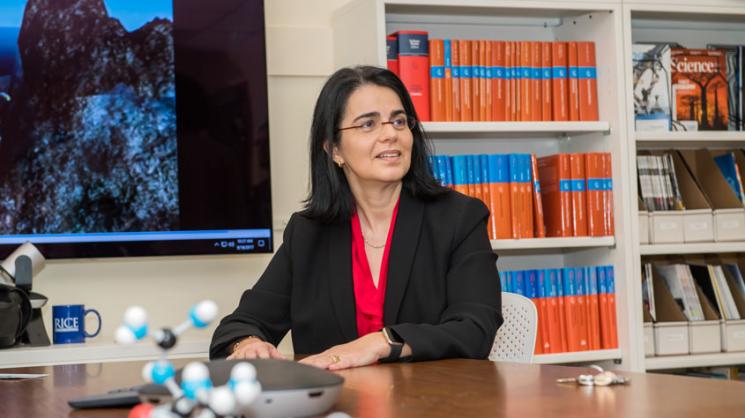Lydia Kavraki, the Noah Harding Professor of Computer Science at Rice, has received a National Science Foundation (NSF) Rapid Response Research grant to implement a “computational pipeline” to help identify fragments of SARS-CoV-2 viral proteins that could be used as targets for vaccine development.
“Efforts are already underway to produce new drug inhibitors, repurpose existing drugs and devise combination treatments for COVID-19,” said Kavraki, who is also professor of bioengineering, electrical and computer engineering, and mechanical engineering.
“At the same time, vaccine development targeting both neutralizing antibodies against envelope proteins of the virus, and long-term cell-mediated immunity based on T-cell lymphocytes. T-cell responses are particularly important for fighting viral infections because they can find and eliminate infected cells.”
The $119,747 grant will fund Kavraki’s proposal titled “Structure-based identification of SARS-derived peptides with potential to induce broad protective immunity.” The NSF Rapid Response grants are given “to conduct non-medical, non-clinical-care research that can be used immediately to explore how to model and understand the spread of COVID-19.”
Kavraki proposes development of a “computational pipeline” to help identify peptides that are conserved in various strains of SARS-CoV and could provide protective cellular immunity against the viruses. Her strategy would combine sequence-based methods for the structural modeling and analysis of peptides bound to various human leukocyte antigen (HLA) receptors.
HLAs display the peptides to T-cell lymphocytes, and the proposed pipeline would enable the identification of conserved “hot-spots” for T-cell recognition.
‘The goal of several researchers is to find viral peptides that, if used in a vaccine, could provide protective immunity against multiple strains of SARS-CoV-2. Our project is restricted to the computational modeling component, and we hope it can inform future vaccine development efforts,” she said.

